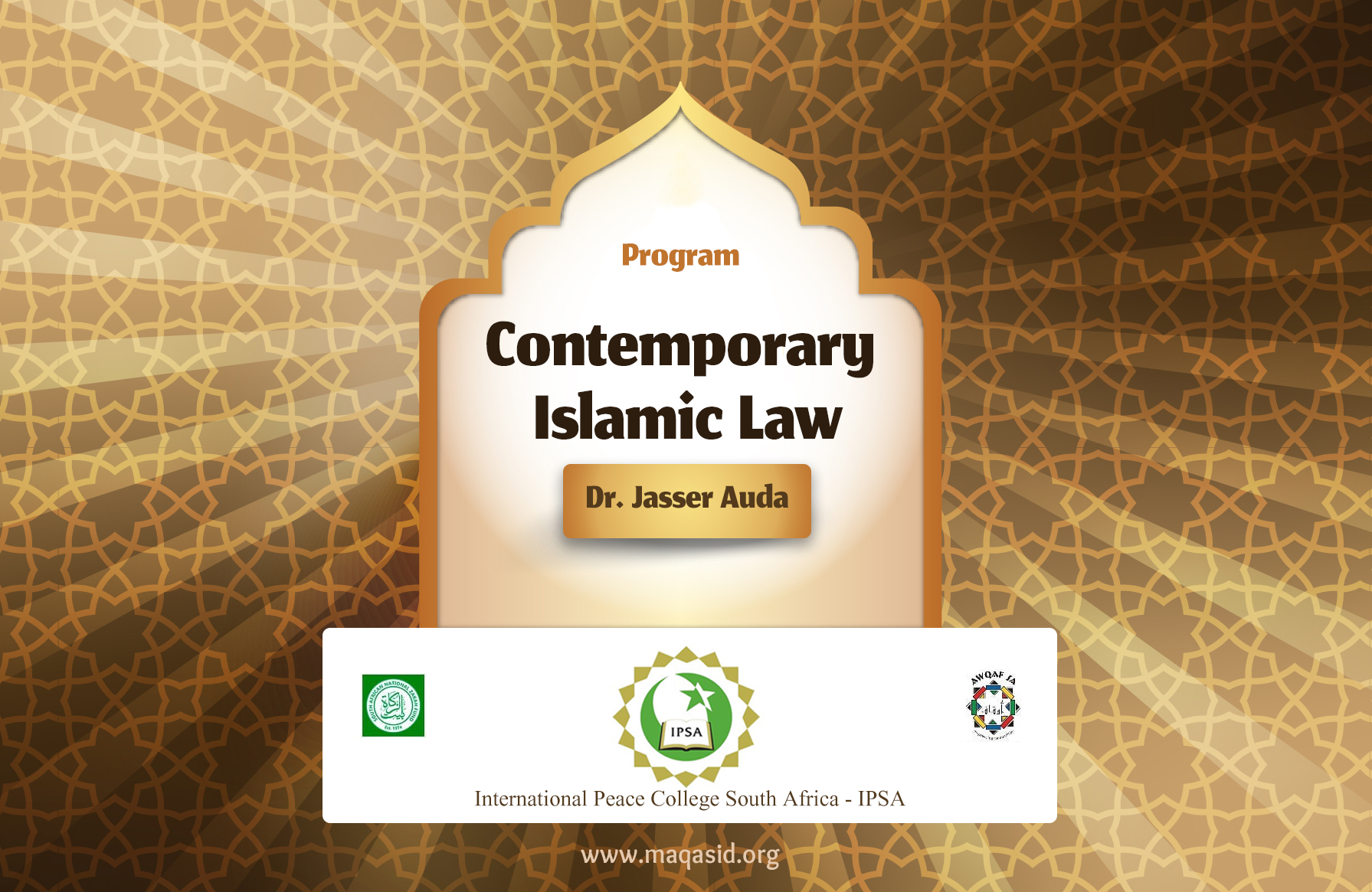Contemporary Islamic Law
A course in Cape Town, South Africa

The Program aims to provide students with a comprehensive and objective-oriented (maqasidi) methodology (manhajiyyah) to contemporary Islamic law (fiqh). First, fiqh is defined as Islam’s ethical system in all aspects of life; going beyond the traditional chapters on the “acts of worship” (ibadaat) to include contemporary fiqh on issues related to medicine, economics, arts, politics, family, environment, international relations, etc. Then, Islam’s revealed knowledge, i.e. the Quran and Sunnah, takes a central position in the fiqhi methodology taught in this module, and the relationship between the Quran and the narrations of the Sunnah is explained in the context of the fundamental theories (usul) of reasoning (ijtihad). And after surveying the history of the traditional schools of fiqh since the era of the companions of the Prophet (s), the module covers and compares various contemporary schools and trends. A number of case studies are presented related to human rights (huquq al-insan), Islamic law for minorities (fiqh al-aqalliyat), family law (fiqh al-usrah), charity endowments (fiqh al-waqf), priorities in the Islamic law (fiqh al-awlawiyyat) and universal laws of God (fiqh al-sunan al-ilahiyyah).
The following are the course topics:
1. Introduction and a brief Islamic intellectual history
2. A critical analysis of contemporary trends in Islamic thought/law
3. Revelational maqasidi analysis
4. Revelational fundamentals and logical analysis
5. Renewing disciplinary studies
6. Renewing Ulum al-Sunnah
7. Renewing Usul-ul-Fiqh
8. Case studies: Islamic banking and family law for minorities
9. Application to phenomena-based studies
10. Application to strategic studies
1-10: Fiqh is not Islamic law!
2-10: Critical analysis of current Islamic trends
3-10: Towards a Quranic Maqasid-based Methodology
Impact of modern philosophy on Quranic Maqasid Studies, 3-10: Q & A
4-10: Maqasid of the Quranic themes and signs
Can a ‘professional’ interpret the Quran? 4-10: Q&A
5-10: Maqasid of Quranic structure & eloquence
The scope of fiqh and fixed & changeable matters, 5-10: Q & A
6-10: The war on concepts & objectives
Do we need to ‘de-westernize’ knowledge? 6-10: Q&A
7-10: Maqasid of harmony with the universal laws
How Islamic are Islamic banks? A Maqasid Approach, 7-10: Q&A
8-10: Maqasid Approach to Hadith narrations
9-10: critiquing “fiqh of obedience”&”Israelite narrations”
Bukhari & Muslim are books of Fiqh not Hadith, 9-10: Q&A

